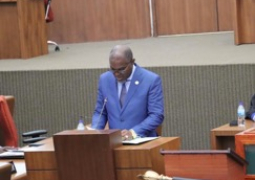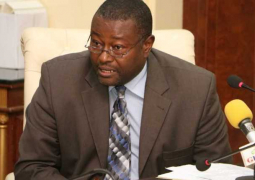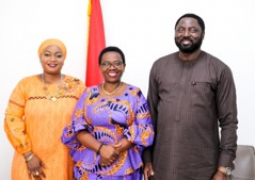
Justice Jallow’s statement was read by Yakarr Cox, principal state counsel at the Justice Ministry during the validation of the Universal Periodic Review Midterm Assessment Report (UPR) by The National Human Right Commission (NHRC) and partners.
The Universal Periodic Review (UPR) is a unique process which involves a review of the human rights records of all UN Member States. The UPR is a State-driven process, under the auspices of the Human Rights Council, which provides the opportunity for each State to declare what actions they have taken to improve the human rights situations in their countries and to fulfil their human rights obligations.
The Gambia was reviewed on 5 November 2019, marking the country's third review since the establishment of the council in 2006.
He said: “We remain committed to improving the country’s legal and institutional framework to align it with international human rights standards.”
Moving forward, Jallow said his ministry has taken note of the Justice, Rule of law and Legal Reform issues highlighted in the UPR draft report, particularly on outstanding ratifications of some treaties and state reports.
“I assure you that a fully functional Human Rights Unit is in the offing at the ministry and in due course we will improve in these score cards,” he affirmed.
He said, in due course the government would improve in Justice, Rule of law and legal reform issues that are highlighted in the UPR report.
According to the Mid-Term Assessment Report, the NHRC is challenged with inadequate financial capacity to effectively deliver on its mandate.
However, responding to this, Jallow said that budgetary challenges are not the desire of government, adding “I assure you that my ministry will continue to advocate for the Commission in government and support you in other
resource mobilisation endeavours whenever needed.”
Emmanuel Daniel Joof, chairperson of the NHRC commended the government for its foresight in submitting the 2019 UPR report to the United Nations UPR Council and for accepting most of the recommendations touching critical areas of governments and human rights.
He said the validation of the document ensures that the country’s review in 2019 does not remain a mere process between the UPR Working Group and The Gambia government but rather that various stakeholders and the public are included in our process as required by United Nations Resolution.
“Your work and the report ensures that the Gambian public is made aware of the dialogue that was undertaken by the government, UN Working Group and the government’s commitment as per the 207 recommendation they have agreed to implement,” he said.
He commended the Swiss government through its Dakar Embassy for supporting the committee for monitoring the implementation of UPR recommendations.
Representing UN Resident Coordinator, Yvones Masarakufa, senior human right adviser at UN Resident Coordinator Office, commended the NHRC for its participatory approach, particularly by constituting a broad-based UPR committee drawn from government and non-governmental institutions to monitor and report on the status of implementation.
She urged the government to continue implementation of outstanding recommendations, including passing of additional relevant legislation aimed at promotion and protection of rights and submission of outstanding reports to treaty bodies, while assuring UN continuous support to NHRC.





